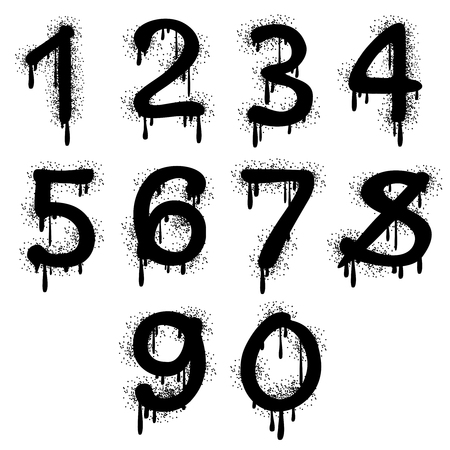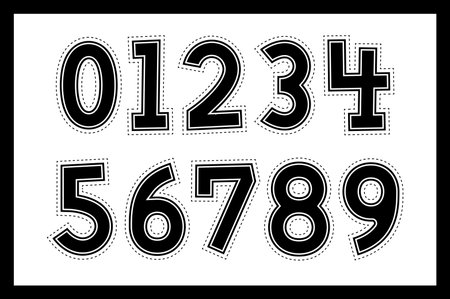Introduction to British Theatre Superstitions
The world of British theatre is steeped in a rich tapestry of superstitions and folklore, woven seamlessly into the fabric of its culture. From the West End’s grand old playhouses to intimate fringe venues, these curious customs have survived centuries of change and innovation. But why do actors, directors, and stagehands still cling to such time-honoured rituals in an age of modernity? The answer lies in the unique blend of tradition, camaraderie, and a dash of superstition that defines the thespian experience. Superstitions offer comfort in the face of unpredictable live performances, reinforcing a sense of community backstage and connecting today’s performers with generations past. As we delve into the origins and meanings behind phrases like “break a leg” and other theatrical traditions, it becomes clear that these eccentric beliefs are far more than mere quirks—they are vital threads holding together the ever-evolving story of British theatre.
2. The Curious Origin of Break a Leg
The phrase break a leg is one of British theatre’s most enduring superstitions—an expression brimming with intrigue and a dash of dark humour. Unlike straightforward well-wishes, its history is a fascinating tapestry woven from euphemism, theatrical tradition, and the unique psychology of performers. In British culture, wishing someone “good luck” in the theatre is considered a major faux pas; it’s almost like tempting fate to do the opposite. Instead, ‘break a leg’ is used as a coded wish for success, designed to outwit mischievous spirits believed to haunt backstage corridors.
There’s no single, universally accepted origin story for ‘break a leg’. Some historians trace it back to Shakespearean times, while others point towards the rambunctious stages of Victorian music halls. A popular theory suggests that if an actor “broke” the line of the stage’s leg curtains by stepping onstage (and thus performing), they had already achieved success. Another explanation involves Elizabethan English slang—where “breaking a leg” could mean taking a bow, bending one’s knee in acknowledgement of applause.
The Euphemistic Undertones
Superstition runs deep in British theatrical circles, with language playing a clever role in averting bad luck. Break a leg is the ultimate example—a phrase deliberately wishing misfortune as reverse psychology to avoid jinxing a performance. Here’s how break a leg compares to other common phrases:
| Phrase | Literal Meaning | Cultural Context |
|---|---|---|
| Break a leg | Hurt yourself | Wishing good luck without saying it directly |
| Good luck | Success | Avoided in theatre; seen as tempting fate |
| Chookas | N/A | Australian equivalent, rooted in similar superstition |
Why Not Just Say Good Luck?
The aversion to saying “good luck” is more than just quirky tradition; it speaks to the superstitious streak that runs through British theatre. Actors believe that uttering those words invites disaster—perhaps due to centuries-old beliefs about mischievous spirits or simply the unpredictable nature of live performance. The phrase ‘break a leg’ has become so embedded in the cultural fabric that even modern British actors adhere to it religiously, often sharing knowing smiles and whispered exchanges in dressing rooms before curtain-up.

3. Macbeth: The Scottish Play Taboo
If you’ve ever spent time backstage in a British theatre, you’ll have noticed that the word “Macbeth” is rarely, if ever, uttered aloud. Instead, actors and crew refer to Shakespeare’s tragedy simply as “The Scottish Play.” This tradition is no mere quirk; it’s rooted in centuries-old superstition. The play’s reputation for attracting disaster is legendary—tales abound of accidents, injuries, and mishaps striking productions from its very first performance in the early 17th century.
But why does “Macbeth” carry such an infamous curse? Some say Shakespeare used actual incantations in the witches’ scenes, invoking dark forces best left undisturbed. Others point to the play’s violent themes and relentless body count as inviting chaos into any production. Regardless of the true origin, the anxiety persists among British thespians to this day.
To counteract the supposed curse, elaborate rituals are part and parcel of British theatre culture. Should someone accidentally utter “Macbeth” within a theatre’s walls, they must immediately perform a series of actions—often spinning around three times, spitting over their left shoulder, and reciting a line from another Shakespearean work, like “Angels and ministers of grace defend us!” These traditions aren’t just superstitions; they’re woven into the fabric of theatrical camaraderie and serve as a rite of passage for anyone treading the boards in Britain.
4. Backstage Beliefs: Rituals and Lucky Charms
Step backstage in any British theatre, and you’ll find a secret world of superstitions quietly guiding the cast and crew. Beyond the well-known phrase “break a leg,” there’s a tapestry of rituals woven into everyday life at the theatre—each with its roots deep in tradition, fear, and hope.
Ghost Lights: The Eternal Sentinel
One of the most enduring superstitions is the use of the “ghost light”—a single bare bulb left burning on stage after everyone has gone home. While practical in preventing late-night tumbles, many believe it keeps mischievous spirits appeased or offers protection from ghosts said to haunt old theatres across Britain. This blend of safety and superstition highlights how folklore lingers even in modern venues.
Lucky Routines and Protective Talismans
Actors and crew alike hold fast to lucky routines before every performance. Whether it’s always donning the left shoe first, reciting specific lines, or knocking on wood, these habits are thought to ward off disaster. The belief extends to lucky charms as well—small objects believed to bring fortune or shield from bad luck. Let’s explore some examples:
Lucky Charm / Ritual |
Symbolism & Purpose |
|---|---|
| Rabbit’s foot keyring | Fabled for luck, often carried by stage managers |
| Wearing red socks on opening night | Traditionally believed to ensure a successful run |
| Kissing the script before curtain up | A gesture for inspiration and memory retention |
| Pocketing an old theatre token or coin | Links performer to generations past, invoking their blessing |
The Unseen Rituals Behind Every Curtain Call
Beneath these customs lies a shared belief: that luck can be influenced by small acts and tokens. From ghost lights glowing through empty auditoriums to cherished trinkets tucked inside costumes, these rituals unite British theatre folk across centuries. They remind us that behind every polished performance lies a web of unseen practices—binding tradition, superstition, and creativity into one enduring spectacle.
5. Modern Perspectives and Lasting Traditions
In the vibrant landscape of contemporary British theatre, superstitions such as “break a leg” have not faded into obscurity; rather, they’ve evolved, taking on new forms and meanings that bridge tradition with modern sensibilities. While the original intent behind these rituals may have been steeped in genuine fear of bad luck or mischievous spirits, today’s practitioners often engage in these customs with a knowing wink—a blend of reverence for the past and playful camaraderie among cast and crew.
For instance, saying “break a leg” remains virtually compulsory before curtain up, yet it is now delivered with an understanding of its theatrical heritage and its power to unite performers. It’s become a rite of passage for newcomers and a badge of belonging for seasoned actors. Other taboos, like avoiding whistling backstage or referencing “Macbeth” by name, are still observed in many theatres, but are just as likely to spark laughter and communal storytelling as they are to invoke real anxiety.
This blurring of lines between superstition and inside joke reflects the broader evolution of British theatre culture itself—one that values tradition while delighting in reinvention. Directors might incorporate these old beliefs into rehearsal room banter or opening night rituals, using them to foster a sense of community and continuity across generations. At the same time, more progressive troupes may playfully subvert such traditions, questioning their relevance or even weaving them into performances as meta-theatrical commentary.
Ultimately, these enduring customs remind us that the theatre is as much about shared experience as it is about spectacle. Whether observed out of habit, heritage, or humour, superstitions in British theatre continue to shape the unique atmosphere backstage and beyond—proof that even in an age of digital innovation and boundary-pushing artistry, there’s always room for a little magic (and mischief) under the stage lights.


